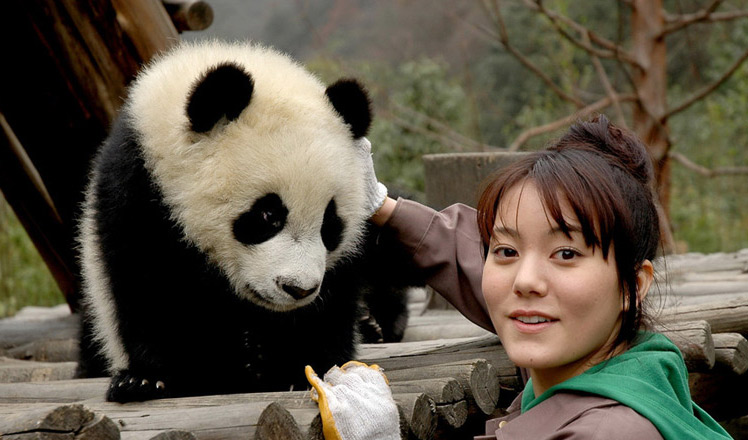More measures sought to protect wildlife habitats
Updated: 2016-02-01 04:35
By SU ZHOU(China Daily)
|
||||||||
Yi said that habitat protection in the revised law still focuses on habitats within nature reserves. "However, the fact is that many habitats do not fall within these reserves.
"Take the giant panda for example. Only 66.8 percent of its habitat is within the nature reserve network," Yi said.
"Without proper protection from the law, those areas outside reserves risk being sabotaged."
Zhang Boju, director of Friends of Nature in Beijing, a nonprofit organization, said that even nature reserves are facing commercial development issues.
Zhang said one of the articles in the draft, which covers economic development and construction affecting wildlife and its habitats, should include a requirement that the effect of such work should be assessed.
There should also be a provision involving a recovery plan for any damage caused to wildlife and habitats before a project is started, according to Zhang.
Gao Tianpei contributed to the story.
- Students must learn safety education, experts say
- 73 bodies recovered from rubble of Shenzhen landslide
- Chinese travelers lead 2015 global outbound tourism
- S Korea to issue 10-year visa to highly-educated Chinese tourists
- A glimpse of Spring Rush: little migrant birds on the way home
- Policy puts focus on genuine artistic students
- Negotiating political transition in Syria 'possible': Hollande
- At least three killed in light plane crashes in Australia
- BOJ further eases monetary policy, delays inflation target
- DPRK may have tested components of hydrogen bomb
- Goodwill sets tone at Wang, Kerry's briefing
- Obama picks new Afghan commander

 Year of the Monkey arriving in Washington
Year of the Monkey arriving in Washington
 Djokovic puts down Federer fightback to reach final
Djokovic puts down Federer fightback to reach final
 Treasures from Romania shine in Beijing museum
Treasures from Romania shine in Beijing museum
 First container train links China to Middle East
First container train links China to Middle East
 'Monkey King' performs dragon dance in underwater tunnel in Tianjin
'Monkey King' performs dragon dance in underwater tunnel in Tianjin
 The odd but interesting life of a panda breeder
The odd but interesting life of a panda breeder
 Top 10 best selling cars on Chinese mainland 2015
Top 10 best selling cars on Chinese mainland 2015
 Warm memories in the cold winter
Warm memories in the cold winter
Most Viewed
Editor's Picks

|

|

|

|

|

|
Today's Top News
National Art Museum showing 400 puppets in new exhibition
Finest Chinese porcelains expected to fetch over $28 million
Monkey portraits by Chinese ink painting masters
Beijing's movie fans in for new experience
Obama to deliver final State of the Union speech
Shooting rampage at US social services agency leaves 14 dead
Chinese bargain hunters are changing the retail game
Chinese president arrives in Turkey for G20 summit
US Weekly

|

|








